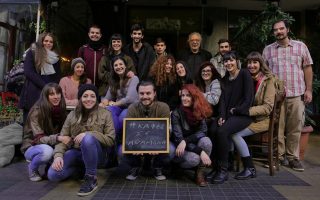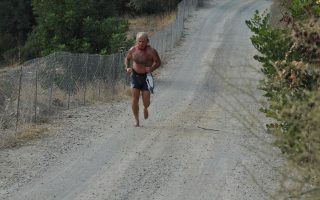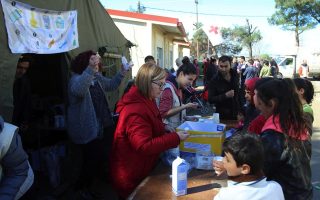Olbios: A comprehensive online guide for the world’s volunteers

Olbios in Ancient Greek means the person who is happy, fortunate and blessed, and is perhaps the most apt term to describe people all over the world who donate their time and effort to good causes.
“People who take part in an action, who help their fellow man, are full of joy, as the act of giving brings great satisfaction,” says Emmanuel Damigos, founder and owner of the international action network Olbios (olbios.org), an exciting new endeavor.
“At one point I noticed that the most valuable people right now – people who participate in social campaigns, who put forward new ideas and have creative impetus – instead of being featured in the media as examples of people who are doing something and also inspiring others, are almost absent,” says Damigos, also a professor of ethical philosophy in Paris.
Volunteering, he says, has a presence today in almost every sector of social activity, “yet remains invisible or is featured as a mere pleasant news item.
“These actions need more than just good intentions, though,” adds Damigos. “They take method, strategy and alliances. There is no help at the beginning, not from governments, or local authorities or businesses. In order to get support, you first need to succeed, alone. These people have been through pain in order to change lives, starting something alone, without any recognition.”
Providing a platform for the “olbios” people of this world was how the network started and, with the help of executive director Georgios Massouridis, it has developed into a comprehensive guide to all social actions and initiatives taking place around the world right now. With input stemming from extensive research and a lot of hard work, Olbios.org is now on line in four languages (English, French, Spanish and Portuguese) and features more than 2,000 initiatives in the fields of politics, economics, justice, human rights, education, environmental protection, culture, new technologies etc, providing valuable information on their work and on how users can do their bit too.
“What we wanted to do was to serve both social groups: those who are already participating in a social action and those – who are far more numerous – who would like to take part and are either skeptical or don’t know how to go about it,” says Damigos.
Olbios shows these people the way by presenting different groups in different countries, involved in a vast array of initiatives.
“This [explosion in civil society movements] is probably the only serious thing happening right now that can have positive results,” says Damigos.
Damigos made several interesting observations while working on the platform, such as that the Finnish educational system is extremely successful, that contrary to popular belief there are corruption-free countries in Latin America, and that a culture of social initiative is developed in schools.
“We have also observed a huge number of people willing to change something in their neighborhood or at a broader social level who never take the next step,” says Damigos.
Greece, for example, a nation which prides itself on Greeks’ generosity, performs very poorly as a country. According to the Charities Aid Foundation’s World Giving Index 2015, in fact, Greece ranks 140th among 145 countries, topped by Myanmar, the United States and New Zealand.
However, Damigos believes such figures to be misleading, saying that people need motive, information and a direction in which they can channel their virtues.





